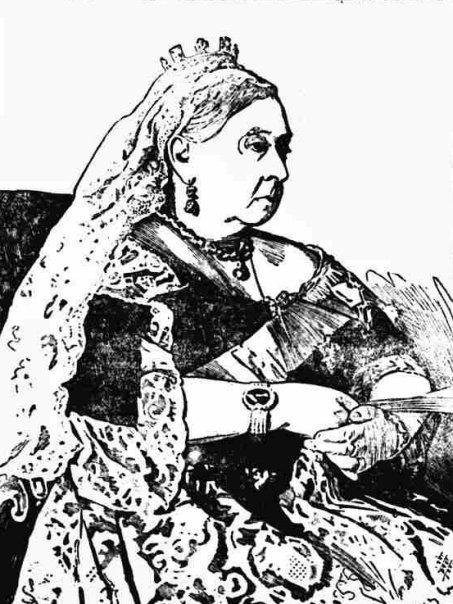Mexborough & Swinton Times – Friday 25 January 1901
Queen Victoria.

Queen Victoria is dead. The passing years which should have told us that this great event was growing an ever more imminent contingency have served only to make it seem ever more impossible.
For to the vast majority of her subjects her benignant presence on the ‘Throne of England has been a part of the sacral order of things from the moment when they first to differentiate the Sovereign of these realms from the kings and of the nursery sterns.; and as the proportion et those who hare witnessed change of monarchs in England has grown small the unconscious tendency to regard Queen Victoria as a permanent part of the British Constitution spread and deepened.
And now she is gone, and a King rules in the stead of the gracious Queen who has given her name to the great Victorian era. Inevitably her chief claim the attention of the future historian will be the coincidence of her reign with the marvellous development that era has produced, but to mourners of today the thought is of the grace and goodness of the person which we have lost.
Never, surely as a British Sovereign been more beloved. In the case of only one or two since our German ancestors first established the race on these shores as anything like the wide sense of personal devotion which she has had at command been produced.
And the reason of it is clear beyond mistaking. Her people loved her because she loved her people. She made their joys her joys and their griefs her griefs. And when joys or sorrows came to her she made it clear that the sympathy of her people were in either case precious to her.
Doubtless Queen and people acted and reacted upon each other in the evolution of the bond of perfect sympathy which characterised the closing decades of her reign. There was something in the spectacle of a girl of eighteen called suddenly to the throne of a great Empire which laid instant claim upon the chivalrous sympathy of her people.
Her happy marriage, the gift of many children, and the ideal family life which followed made fresh links of sympathy between a Queen and a people who together an intense love of domesticity.
But it was the Queen’s sorrows yet more than the Queen’s joys which ripened the affection of her people. The successive deaths of the Prince Consort, Princess Alice and her child, Prince Leopold, the Duke of Clarence, the Duke of Edinburgh and his son, Prince Christian Victor, and many other more distant but still dearly loved relations called fourth expressions of popular sympathy and sorrow for which the Queen always showed herself deeply and sincerely grateful.
The ever ready concern she showed in her turn when sorrow overtook any section of her people, the constant unostentatious kindnesses to those whose needs she knew, were none the less precious to their recipients because the inevitable product in a good woman’s heart of sorrows meekly borne and a full measure of sympathy received.
Article continues